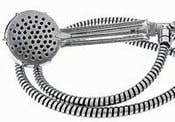Under the State Government's plan to secure Sydney's water supply for the next 25 years, homeowners will have to prove their houses are water-efficient before they can sell them, according to a report in the Sydney Morning Herald.
Starting July 2007, Sydney, Australia, homes built before July of 2004 will need to be fitted with water-efficient showerheads, taps and other devices before they can be sold. Homes built after July are already subject to water-efficiency strictures, stated the report.
Details of the plan have not been finalized, but the water certificate may require the signature of a plumber with cost of plumbing services in Sydney starting at about $60 an hour.
Other details included measures to reduce water consumption by government departments, councils and large commercial and industrial users.
"The change of culture is happening," the Energy and Utilities minister, Frank Sartor, said yesterday. "We have to make sure it's a permanent change in culture."
Under the initiative, NSW councils must prepare by March 31, 2006 water conservation plans that will require them to install water-efficient taps, showers and toilets in all council buildings and public amenities, including sports grounds and parks, by September 2007, according to the Sydney Morning Herald.
By the same date, the Government also wants 200 of the state's heaviest commercial and industrial water users to prepare similar conservation plans.
Sartor expects this will save about 15 percent of the 70 billion litters the sector uses each year. According to him, businesses, local authorities and state agencies that wanted to invest in water conservation would be able to bid for grants from a fund worth $120 million over four years; however, there will be no grants for homeowners to do the same. Instead, the Government proposes to extend the rainwater tank rebate scheme until July 2008, at a cost of $6 million, and expand Sydney Water's retrofit program, under which the average home can be made water-efficient for $22.
Sydney Water will aggressively push to ensure 500,000 Sydney homes are improved within the next two years, more than double the 230,000 homes it has already made efficient, reported the Sydney Morning Herald.
At a subsidy of about $120 per household, the retrofitting may cost more than $32 million.
In addition, Sartor announced that Sydney Water's operating license would be amended from July 1 next year to set minimum response times for dealing with water mains ruptures and pipe leakage, although the exact times have not been set.
The Environment Minister, Bob Debus also said there would be new environmental flows for rivers in the Sydney catchment, including the Hawkesbury-Nepean, Woronora and Shoalhaven Rivers.
But water to keep the rivers in good health would be available only when there was "enough water in the dams", Debus said, "not during periods of extreme drought such as in the current circumstances".
The Opposition criticized the plans for ignoring the plight of Sydney's rivers.
"Bob Carr must be a magician," said the Opposition's environment spokesman, Michael Richardson. "He's going to pump the same water he's going to send down the Hawkesbury through Sydney's pipes."
Richardson said a further 37 billion litters of water each year could be saved if treated wastewater replaced the drinking water used for purposes other than drinking.
New rules for homes include.
• Existing homes sold after July 1, 2007 will have to be certified water-efficient.
• Sydney Water to speed up its retrofit program over the next two years, to make 270,000 more existing homes water-efficient. Cost: $32 million.
• Rainwater Tank Rebate Scheme extended until July 2008. Cost: $6 million.
Source: The Sydney Morning Herald


